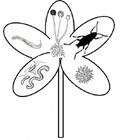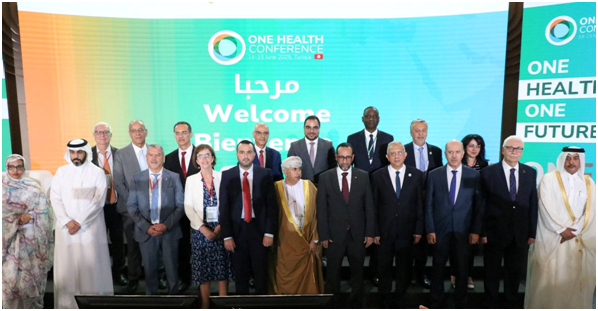
Editorial Board
Evaluation Reviewers
Instructions to Authors
Evaluation Process
Paper Submission
Objective & Policy
Number of visits :
- Current Issue -

- Previous Issue -


Last update : June 2025
- Events -
Plant Protection Events
Report
on
Regional Workshop on “Emergency Plans as a Practical Simulation Exercise to Prevent the Spread of Xylella fastidiosa”
Hammamet, Tunisia, May 26-28, 2025

On Monday, May 26, 2025, Tunisia hosted a regional workshop titled “Emergency Plans as a Practical Simulation Exercise to Prevent the Spread of Xylella fastidiosa”. The event was organized by the General Directorate of Plant Health and Agricultural Inputs Control under the supervision of the Ministry of Agriculture, Water Resources, and Fisheries, in coordination with the Near East Plant Protection Organization (NEPPO), the European and Mediterranean Plant Protection Organization (EPPO), the Food and Agriculture Organization of the United Nations (FAO), the European Food Safety Authority (EFSA), and the BeXyl project. The workshop lasted three days and includes a scientific program and a field visit for practical and laboratory implementation.
The main objective of the workshop is to develop a proactive emergency plan for pest prevention, particularly targeting pests that cause severe damage, such as Xylella fastidiosa. The specific goals of the emergency plan related to Olive Quick Decline Syndrome caused by Xylella fastidiosa include:
- Ensuring a rapid and effective response to prevent the spread of Xylella fastidiosa, given its economic, environmental, and social impact,
- Helping National Plant Protection Organizations (NPPOs) preparation adequately to prevent and manage this pest, especially when multi-stakeholder collaboration is required.
Another key objective of the workshop is to develop a specific emergency plan for the Republic of Tunisia to prevent the entry and establishment of Xylella fastidiosa.
Representing the Minister of Agriculture, Water Resources, and Fisheries, Mr. Haykel Hochlef, Head of the Minister's Office, chaired the workshop's proceedings. He was joined by Ms. Olga Tikka, Director-General of EPPO; Mr. Mohamed Habib Ben Jemaa, Executive Director of NEPPO; Mr. Thaer Yaseen, Regional Officer for Plant Protection and Production at FAO for the Near East and North Africa; Mr. Mohamed El Hadi Saydat, Officer for Plant Production and Protection at FAO's North Africa Sub-Regional Office; as well as representatives from Euro-Mediterranean and Near East/North Africa countries, and a number of experts and professionals in plant protection.
Dr. Ikbal Chaieb,
CRRHAB Chott-Mariem,
University of Sousse, Tunisia
------------------------
Report
on
Regional One Health Conference for MENA Countries “Carthage Declaration for One Health”
Hammamet, Tunisia, June 14-15, 2025

On June 14, 2025, Tunisia hosted during two days a major regional event with the launch of the "Carthage Declaration for One Health." This declaration was announced in the presence of ministers and representatives from the health, environment, and agriculture sectors of the North Africa and Eastern Mediterranean region, with the support of several international organizations. The main objective of this initiative is to translate the "One Health" concept into concrete commitments, moving beyond mere recommendations.
The declaration specifically aims to integrate the One Health approach into national policies related to human, animal, plant, and environmental health. It also encourages investment in surveillance systems, early warning mechanisms, and cross-sectoral training. Moreover, the initiative includes the establishment of a regional center in Tunis to coordinate efforts and share expertise, as well as the development of flexible legal frameworks that reflect the interconnection between health, environment, and agriculture. Through this declaration, stakeholders are called upon to join forces in building an equitable, integrated, and resilient health system capable of meeting future challenges.
Dr. Ikbal Chaieb,
CRRHAB Chott-Mariem,
University of Sousse, Tunisia